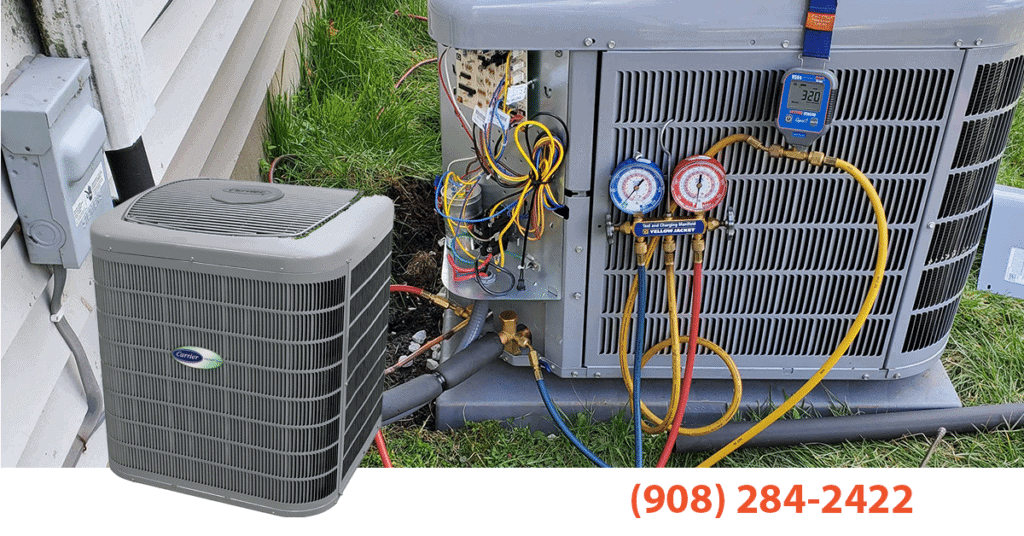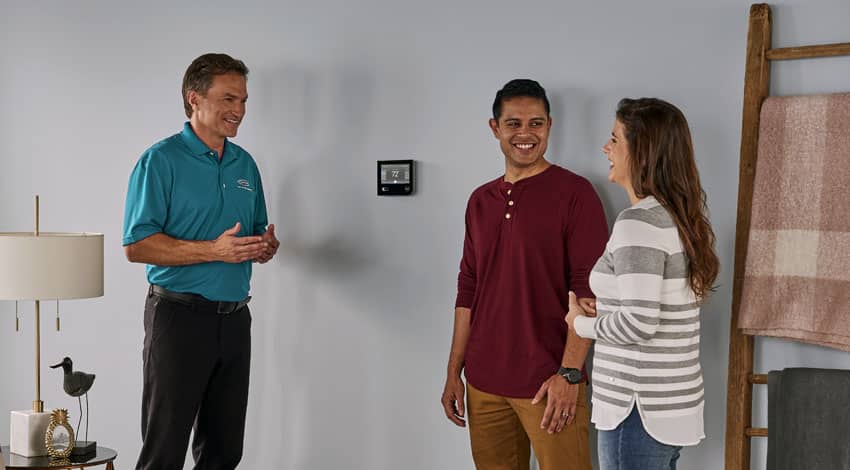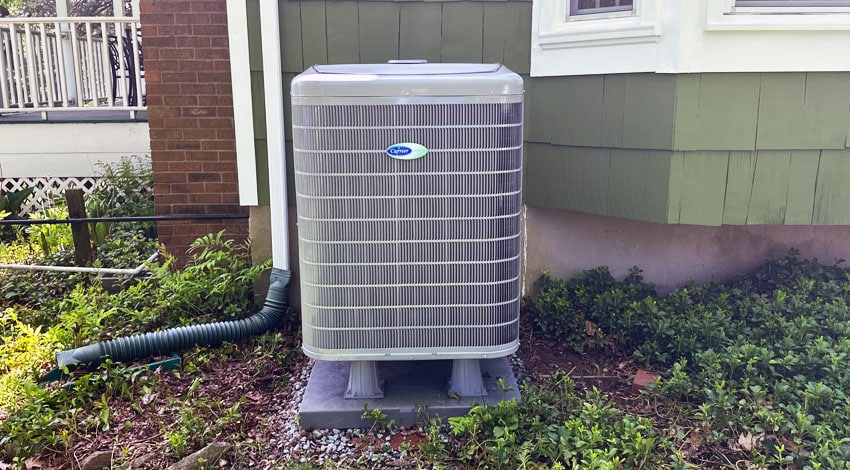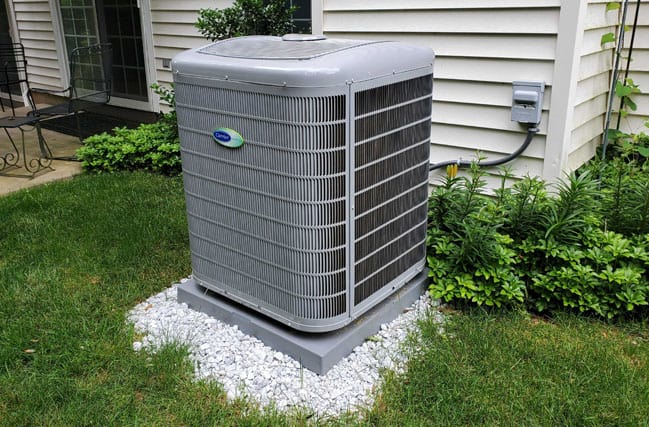
When the Summer heat builds and your electricity bill comes, you will realize how much an air conditioner can cost. Of course, air conditioners are a very worthwhile investment, especially if you want to stay healthy and productive despite the searing heat. However, to properly get your full return on your investment into the unit, you have to make sure it is working properly and efficiently.
If your air conditioning system isn’t getting the maintenance it needs and deserves, several bad things could happen. Your air quality will deteriorate, the AC will become inefficient, and your asthma or allergies could even get triggered.
Thankfully, we have a simple 7-step guide to help ensure your air conditioner remains in its best shape during the summer months. Let’s dive in.
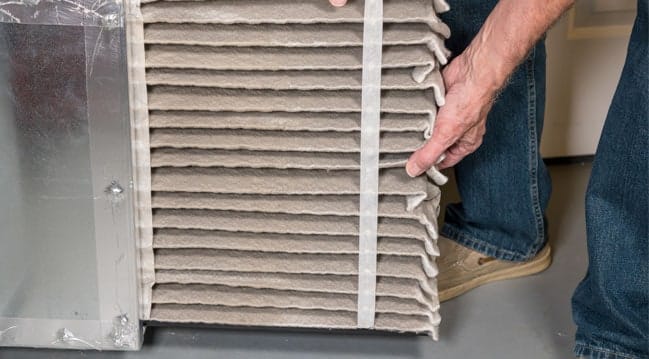
1: Change Your Filters
The filters inside your air conditioning unit are what stand between you and dirty air. Therefore, if your filters are too dirty, they won’t be able to deliver clean and healthy air to you.
If you own an air conditioner that you use occasionally, you will want to clean those filters at least quarterly. If your air conditioner is on regularly, consider cleaning or replacing the filters every one to two months.
The build-up of dirt in your air conditioning filter can be disastrous. It could damage the evaporator coil, or make your air-con require more energy to meet the desired thermostat. An increase in required energy will cost you extra on your utility bill too, so clean the filters or replace them (for only about $10 a filter on the cheap end), and your wallet will be grateful.
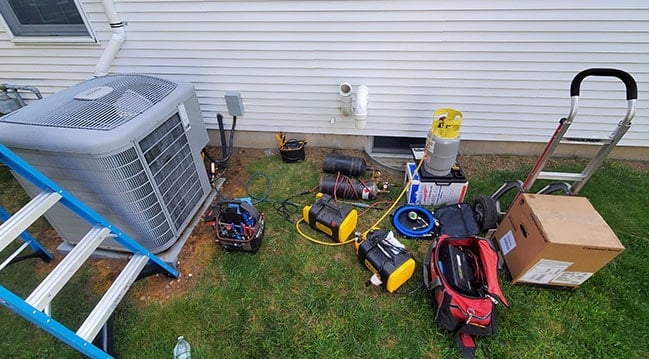
2: Get an Annual AC Service
Your air conditioner should be thoroughly checked or serviced annually. You can choose to study up and do this on your own. There are plenty of online walkthroughs and video tutorials that will teach you how to check your air conditioner properly.
You may also opt for an AC service or maintenance professional. That is pretty common and can spare you a lot of hassle, especially if you can’t find the time to learn the ropes yourself.

3: Adjust Your Thermostat Accordingly
It takes a particular type of person to always, without fail, remember to change the thermostat when you leave your home. However, it’s essential to do so; otherwise, you will be consuming way too much energy while you’re out of the house.
On the other hand, you may be forgetful and end up with several incidents of an AC left set on cold. In that case, we advise you to install a programmable thermostat instead. Programmable thermostats can automatically change the set temperature at certain hours simply by changing the settings through your smartphone remote app.
4: Don’t Overdo the Thermostat
Even if it’s a scorching day, you shouldn’t overdo the thermostat. Your body will learn to adapt to the heat pretty well. To use less energy and spend less money, consider keeping your thermostat at a reasonable temperature and allowing your body to adjust in the meantime. Between 70 and 80 is usually the “sweet spot”.
5: Use Your Fans
Firstly, your air conditioner likely has fan settings, which can help you feel cooler without changing the temperature. Secondly, using external fans, like ceiling fans and stand fans, can also improve the air circulation in your room and make the air feel breezier.
6: Place Your Thermostat Away from Sunlight
If your thermostat is placed somewhere the temperature can be easily changed, such as in direct sunlight or under a light bulb, it will give you inaccurate readings. The thermostat will think it’s warmer than it really is and force your air conditioner to work harder. This can easily be fixed by installing blinds or curtains.
In addition, avoid putting AC vents in stuffy corners. If they are behind furniture or blocked by curtains, your AC will have to work a lot harder than it should.
7: Don’t Waste Energy on Empty Rooms
If one of your rooms is not being used, close the AC vent in the room. The energy being spent on the empty room can be saved or redirected to rooms that are actually being used. Close off airflow to other spaces like closets or cupboards to avoid wasting energy too.
Wrapping Up
Having an AC runs the risk of wasting precious energy and money if you’re not careful. Hopefully, you won’t fall victim to that with this guide, and you’ll have an easy-breezy time with your AC.
